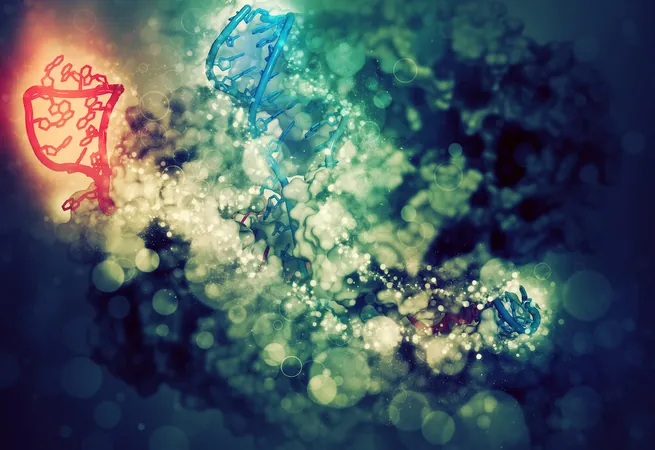
Revolutionary evoCAST Technology: Transforming Human Gene Editing with CRISPR-Linked Bacterial Enzymes
2025-05-19
Author: Yu
Breakthrough in Gene Therapy Applied!
In an exciting leap for genetic medicine, researchers from the Broad Institute and Columbia University have unveiled a groundbreaking technique dubbed evoCAST. This innovative method harnesses laboratory-evolved, CRISPR-associated transposases (CASTs) to efficiently insert healthy genes into human cells, paving the way for promising therapeutic applications.
The Minds Behind the Magic
Led by the brilliant researchers David Liu and Samuel Sternberg, evoCAST has emerged from years of dedicated work. Liu, a professor at Harvard and director of the Merkin Institute of Transformative Technologies in Healthcare at the Broad, alongside Sternberg, an associate professor at Columbia's Department of Biochemistry and Molecular Biophysics, are at the forefront of this medical revolution.
Unleashing the Power of CASTs
Traditionally, CASTs operate as natural enzymes in bacteria, adeptly moving and integrating large DNA fragments while avoiding issues that often plague conventional editing techniques. The remarkable enhancements made by Liu and Sternberg's teams have rendered these engineered CASTs markedly more efficient—up to hundreds of times compared to their natural counterparts!
Overcoming Challenges for Human Applications
One major hurdle in employing CASTs for mammalian cells was its minimal transposition activity. "We discovered that a critical bottleneck was limiting its effectiveness in human cells," noted Isaac Witte, a graduate student. Thanks to extensive laboratory evolution, the team has dramatically improved the performance of CASTs, unlocking their potential as powerful genome editing tools.
Building on Past Discoveries
The research builds on earlier studies, including foundational work by Sternberg and other prominent scientists, highlighting how CASTs were characterized in bacteria back in 2019. Earlier attempts at gene editing in human cells yielded only a 0.1% success rate, too low for real-world application. However, the team’s clever use of the phage-assisted continuous evolution (PACE) system allowed them to evolve a CAST variant that proved to be a game changer.
Four Hundred Times More Efficient!
The newly engineered evoCAST is a powerhouse tool that supports large DNA integrations exceeding 10 kB. In trials with human cells, it was successfully used to insert genes linked to conditions like Fanconi anemia and phenylketonuria, and it significantly enhanced CAR-T immunotherapy with efficiency rates of 10% to 20%.
evoCAST vs. eePASSIGE—A New Era in Gene Editing!
While Liu’s previous technique, eePASSIGE, is known for its high efficiency, evoCAST stands out with its purity and single-step gene installation process. This streamlined operation could facilitate faster applications in medical treatments compared to the more complex eePASSIGE.
A Bright Future Awaits
Although evoCAST is not yet ready for therapeutic use, ongoing enhancements aim to bring it closer to practical applications. The team also wishes to explore other CAST systems using their innovative PACE platform.
Sternberg summarized the excitement surrounding these developments: "With evoCAST, we’ve demonstrated the remarkable potential of natural elements for programmable genome manipulation, and we believe we’ve only begun to tap into the vast possibilities lying ahead!"



 Brasil (PT)
Brasil (PT)
 Canada (EN)
Canada (EN)
 Chile (ES)
Chile (ES)
 Česko (CS)
Česko (CS)
 대한민국 (KO)
대한민국 (KO)
 España (ES)
España (ES)
 France (FR)
France (FR)
 Hong Kong (EN)
Hong Kong (EN)
 Italia (IT)
Italia (IT)
 日本 (JA)
日本 (JA)
 Magyarország (HU)
Magyarország (HU)
 Norge (NO)
Norge (NO)
 Polska (PL)
Polska (PL)
 Schweiz (DE)
Schweiz (DE)
 Singapore (EN)
Singapore (EN)
 Sverige (SV)
Sverige (SV)
 Suomi (FI)
Suomi (FI)
 Türkiye (TR)
Türkiye (TR)
 الإمارات العربية المتحدة (AR)
الإمارات العربية المتحدة (AR)